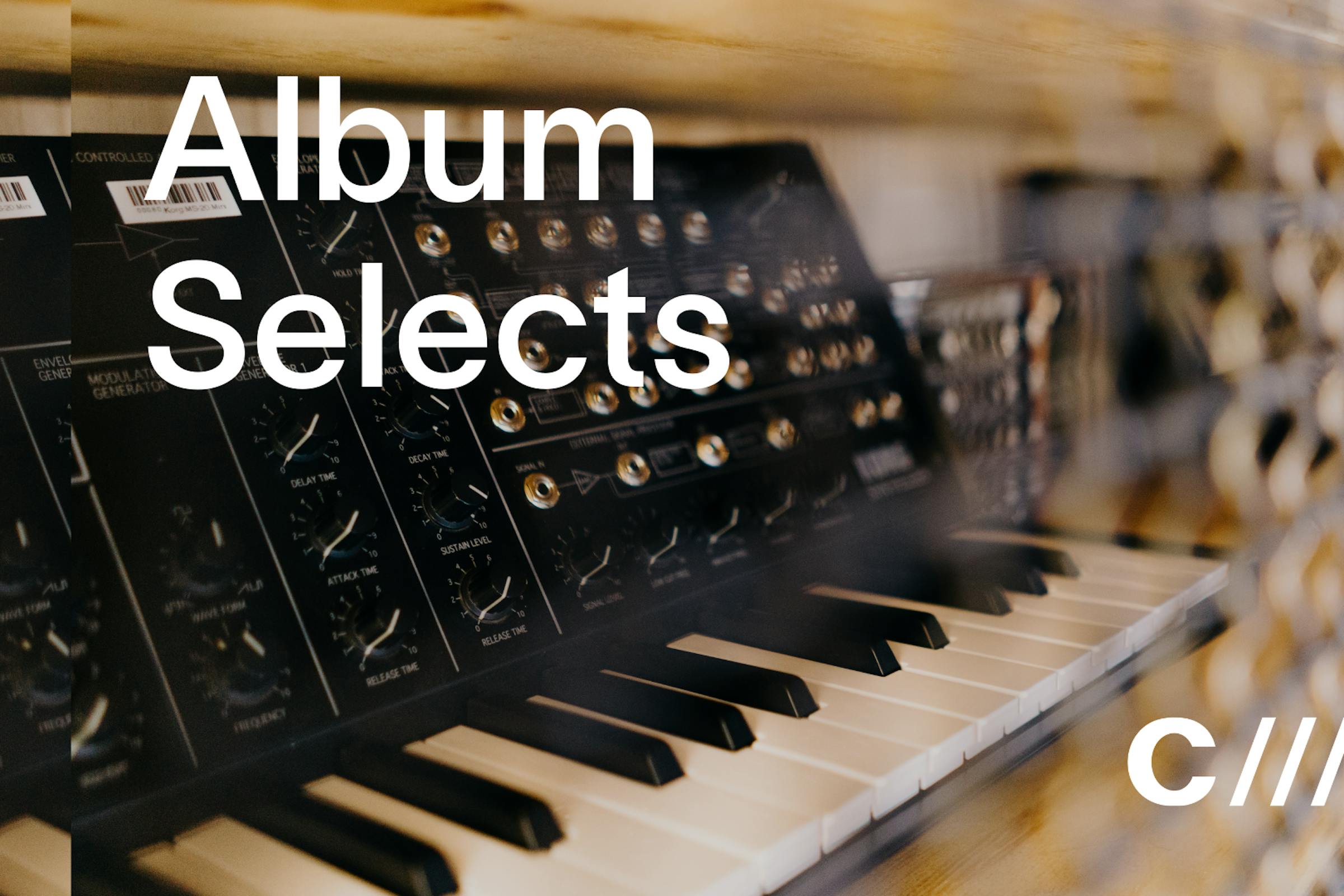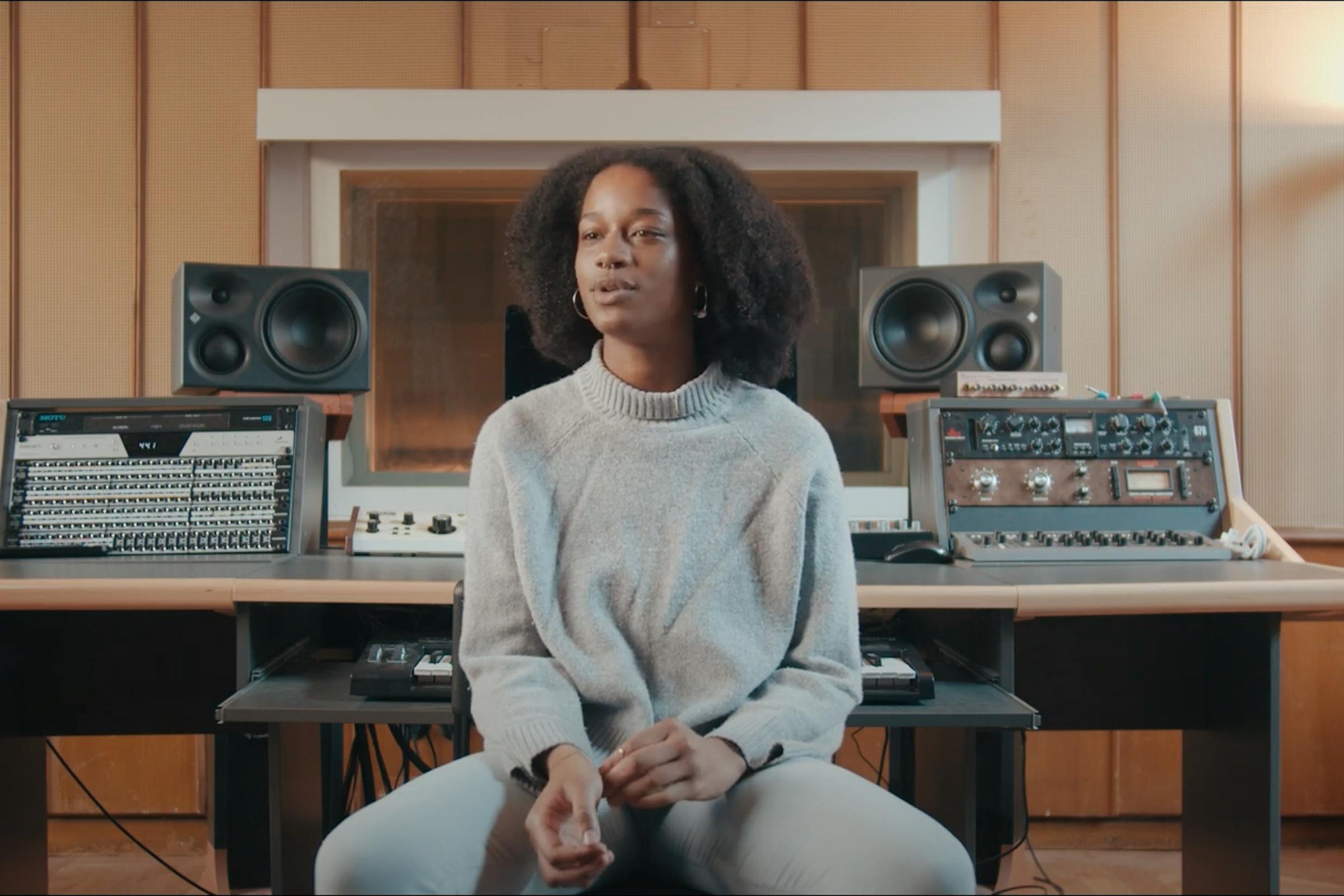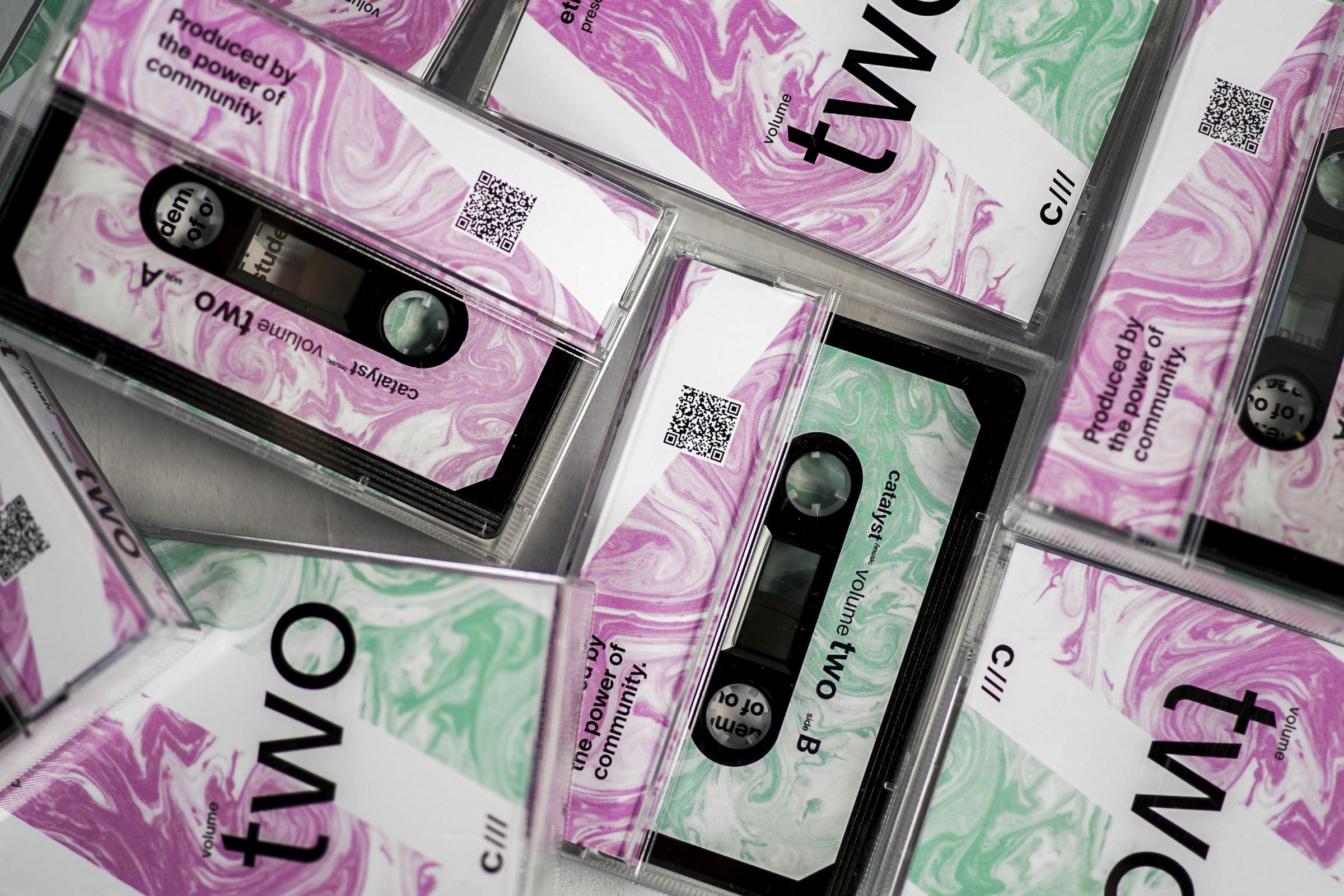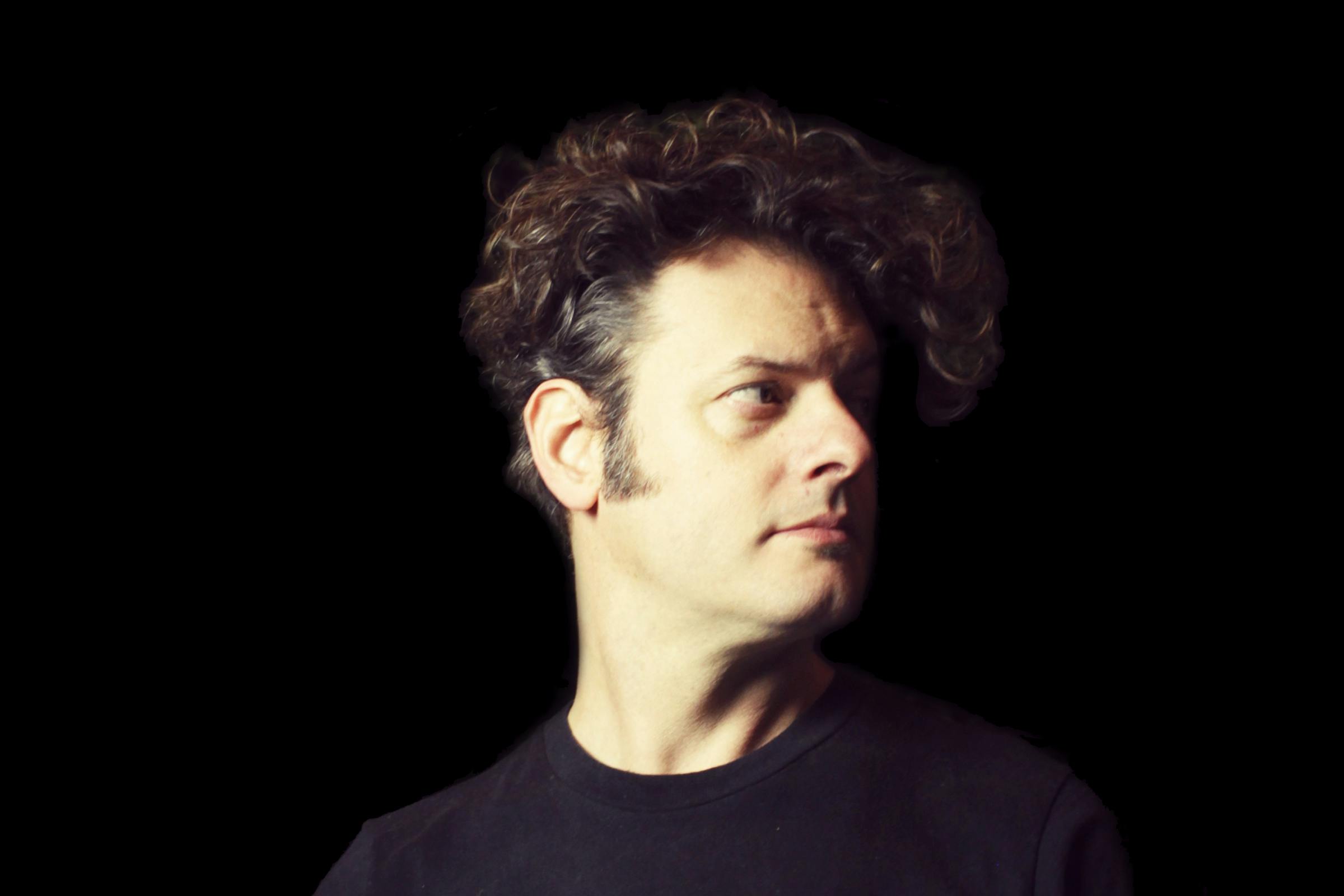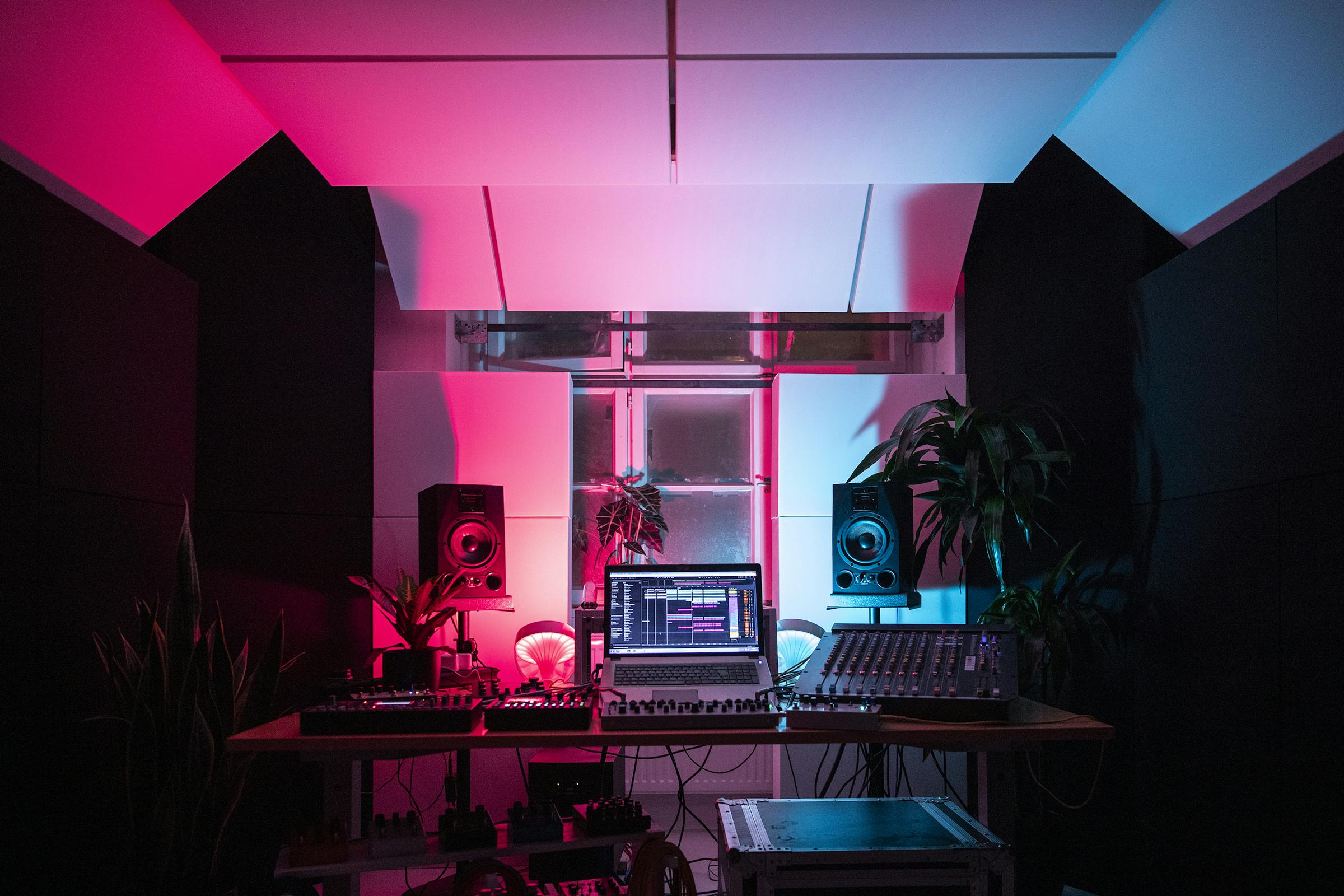Overview
Become a sonic visionary and learn how to put your own creative fingerprint on a range of music and sound. Walking the line between vocational technical training, creative practice and critical thinking, you’ll develop a personal approach and a unique sound as a music producer or sound engineer.
You’ll be immersed in a learning experience that equips you with the latest knowledge and technical skills in sound production. You’ll learn through first-hand experience using our industry-standard studios, workshops led by practising industry professionals, solo endeavours to master every step of the audio journey from ideation to release, and collaborative projects that reach across the spectrum of creative production. You’ll make singles, EPs, music for film, a variety of engineering projects, a studio album and much more.
By the end of the course, you’ll have a wealth of experience and the confidence to bring your own ventures as well as projects set by others to fruition. This hard work will form a solid portfolio, setting you up to make waves in your chosen slice of the audio industry.
You can study this programme either as a full three-year BA degree or the first year only as a one-year HE Certificate.
Open a world of musical possibilities
You’ll learn to use our studios as an instrument for recording, mixing and mastering projects and products. As a sound engineer, you’ll play that instrument to capture the purest essence of the original performance. As a producer, you’ll be the creative visionary and project manager taking ideas from their birthplace in the imagination of the artist, band or composer and helping transform them into a sublime and tangible sonic reality. As a contemporary studio-based composer, you'll take all of these roles and meld them into something new and unique.
We offer a playground for musical self-discovery. Rather than showing you how to copy the work of other producers, we’ll empower you to forge your own creative journey. Whether that’s experimenting using a DAW (digital audio workstation), fostering a network of industry professionals or doubling down on investigating acoustic theory and practice, you’ll always learn by doing here.
“The best three years of my life. This place is magic! Tutors are always there to help – the school is full of inspiring and supportive people. It helps you to understand who you are as an artist or sound engineer, teaches you how to be systematic, how to work with other artists and how to become a professional.”
– Anita Wenglorz, music producer and CAP alumnus
Course structure
Using challenging real-life scenarios, you will learn the industry-standard tools, technical know-how and the essential techniques required to record, mix and produce music for yourself or others. The body of work you produce will be the foundation of a sound engineer or music producer portfolio.
The course content in your first year will focus on:
- Studio recording principles and practice… and more practice….and more practice!
- The ability to develop, produce and complete a creative product.
- The essentials of audio production, sampling and sequencing.
- Utilising psychoacoustics and room acoustics for music production and creating unique timbres.
- Familiarising yourself with different DAW systems and tools of operation for audio production.
- Recording and mixing your own tracks, songs and compositions.
- Making your first steps towards a career in the music industry.
If you choose to enrol for our HE Certificate, you will take just the first year of this programme as a standalone qualification. The one-year HE Certificate course is the same as the first year of the BA programme and you'll be learning alongside the BA students throughout the year. You have the option of progressing into the second year of our BA programme after successfully completing the HE Certificate, subject to results and availability of places.
Workshops
Studio Recording Principles, Studio Recording Practice and Mixing Principles
Begin with foundational recording concepts and studio skills. Learn the operation of equipment in order to perform recordings, explore techniques and consider musical aesthetics with the ultimate aim of creating professional recordings. Build upon your understanding by exploring technical and creative techniques in the process of recording guitar, bass, drums, piano and vocals. Consolidate your skills by organising and running live recording sessions with Berlin musicians. Finish the process by using contemporary tonal, dynamic and panoramic mixing techniques in your workflow while also considering the context of musical genre and the expectations of the client.
Audio Production, Sequencing, Synthesis and Sampling and Production Aesthetics
Study the operating tools for audio production using DAWs (Pro Tools and Ableton Live) and diverse hardware, pushing forward your grasp of the production tools. Learn to transform audio, create unique timbres and practise creative strategies to help you start and develop material in order to complete your musical projects. Out of these sessions, you’ll build your own toolkit to use in the production process, helping you make decisions on the creative aesthetic of your musical projects.
Production Analysis and Composition and Arrangement I
These workshops will bring together critical listening, theoretical study and time invested into applying these skills to your own practice. You’ll engage in a variety of genres, production styles, and production nuances.
Sound In Space
Combine theoretical concepts with practical examples through listening, making, measuring and recording. Experience the links between music production decisions and our hearing system, explore reverberation, create instruments, experiment with mixing techniques and spatialisation as well as discovering and changing the sound variables that alter our perception of music production spaces.
Building an Artist/Producer/Engineer Profile
Using your own music as content, these workshop sessions will support you in discovering your musical values, defining your visual aesthetic, optimising your presence in the musical world and growing a network through communication. Investigate what it means to self-release, navigate the world of music publishing, get a feel for common contracts and understand the issues surrounding intellectual property.
In Year 2, you’ll build on the foundational knowledge of Year 1. Refine your critical listening and mastering skills while keeping an ear to the ground of the latest developments in the industry. Explore and expand your individual skill set and creative approach as you dig even deeper into the techniques of mixing, mastering and studio production.
The course content in your second year will focus on:
- Advanced studio recording techniques.
- Recording, mixing and mastering large-scale projects (albums, EPs).
- Band recording and producing larger studios.
- Comprehensive knowledge of audio production operation tools for different DAW.
- Audio production and composition techniques for multimedia.
- Use of diverse techniques to explore the expansive concepts of sequencing, synthesis and sampling.
- Building a comprehensive knowledge of industry standard tools and techniques.
Workshops
Mixing Practice and Critical Listening and Mastering
Develop your core understanding of foundational mixing methods by exploring the use of tools and techniques that can enhance and refine a musical product. You will practise the process of preparing a mix, investigating workflow and produce mixes toward a predefined vision. Then learn how to create professional masters of musical products – exploring studio requirements, tools, techniques and client communication, all in the context of running a mastering session.
Production Concepts & Practice and Composition & Arrangement II
Broaden the horizons of what is possible when combining traditional methods and tools of music production with modern approaches. You will get a rich insight into creative tools ranging from conceptual approaches to music production to hands-on practical tools. Investigate more complex ideas within composition, like the significance of form and methods for devising and utilising unique musical systems. This process will hone your own approach to music production and distinct creative voice.
Creative Practitioner (Entrepreneurship) and Music and Society
Work towards understanding and defining yourself as an artist or producer and your position within a social and economic environment. Explore niche markets for yourself and study the broader developments of social phenomena and their musical realities. These workshops will help you understand the commercial and academic aspects of the music industry
Audio Production and AI
Learn about how the most up to date technologies are used within music production and practice using them.
Sound Design for Media and Composition for Media
These workshops look across the board, preparing you for collaborations working with both film as well as interactive/performative media like gaming. Develop the conceptual framework needed for media scoring by exploring contemporary and historic examples as well as the creative and technical skills necessary for commercial work. You’ll end up with a portfolio of work which shows a personal perspective while developing your own workflows.
Consolidate your skills and creative practice. By setting out your own brief with our support, you’ll work to define your production vision and prepare to present it to the world. Produce your own creative project from concept to public release in collaboration with other creatives. Establish a professional framework that works for you and launch yourself into the music scene with empowering personal projects that prepare you for the real world and your chosen path.
Throughout all three years of our Creative Audio Production & Sound Engineering programme, you will be creating an unparalleled wealth of audio material for your public-facing portfolios, while broadening your perspective on the creative techniques and practices necessary to pursue your creative calling.
The course content in your third year will focus on:
- Exploring and defining your own distinct creative approach to music production.
- Managing your own creative projects from concept to realisation.
- Discovering creative strategies for starting, developing and completing musical pieces.
- Becoming proficient in providing creative input to someone else’s track, song, album, composition for film, etc.
- Using your sound engineering and audio production expertise to lead studio recordings.
- Developing new and innovative music production and recording methodologies.
- Appreciating and assimilating music production techniques from the last 75 years.
Major Project
The third year focuses on the production of a final major project, in which you will design and set out your own brief in collaboration with an advisor. This high-level project should demonstrate all prior learning and provide a launch into industry or further study.
PUSH1: Frame
Produce and refine a proposal for your major project. Utilising skills and knowledge you’ve already acquired, you’ll set new challenges you don't yet know how to overcome. It’s time to be bold, ambitious and take risks. Become a specialist in the area you are working, whilst producing a tangible outcome in a medium you can share with the world.
PUSH2: Invent
An intensive and iterative production period working on practical research, exploration, production, refinement and completion of your project. Overcome inevitable roadblocks and issues along the way in order to complete a finished artefact, and take part in weekly critique and feedback sessions to support your journey.
PUSH3: Launch
Develop and employ an appropriate strategy for getting your work out into the world. We want your project to connect with people in a way that is meaningful for you and that sets potential creative and practical foundations for your life after Catalyst.
Minor Project
Alongside your major project, you’ll have a choice to make between two minor projects (PUSH4 or PUSH5) which will complete your honours year.
PUSH4: Process (Option A)
Define, develop and provide a service or skill for an external client or collaborator. Document and reflect on the process in relation to professionality, communication, self-development, standards and expectations. Further your professional growth by engaging in real life collaboration, networking, client acquisition, communication and negotiation. Thought of in another way: imagine your work life starts now. What do you need to start out as a creative in the profession of your choice?
PUSH5: Dissertation (Option B)
A large-scale research and investigation project, culminating in a 10,000-word (+/-10%) written thesis. Define a topic or area that you’re passionate about and explore it with as much depth as possible, demonstrating an ability to understand the ideas of others, form your own ideas and opinions and present them coherently in a long-form essay.
Your technological playground
Get hands-on access to industry-standard facilities and tons of bookable gear
“Catalyst was instrumental (pun absolutely intended) in enabling me to make music. It gave me the instruments, the skills, the gear, the tools and the confidence with music technology that I needed to attempt the hefty endeavour of building an entire music project from scratch.”
– Breezy, rapper, singer, producer and CAP alum
What is Creative Audio Production & Sound Engineering? Is it for me?
You should be interested in some or all of the following:
- Establishing your own distinct and creative approach to sound engineering and music production.
- Developing new and innovative audio production methodologies.
- Providing sound engineering expertise to support studio recordings.
- Developing finely-honed listening skills.
- Providing well-informed creative input to a track, song, album, composition for film etc.
- Enhancing recordings with high-level mastering techniques.
- Building a comprehensive knowledge of industry-standard tools and techniques.
- Building a career in the international music, film or gaming industries.
- Learning by doing and gaining hands-on experience applicable to real-life work.
- Joining a progressive learning community supported by a dedicated team of experienced facilitators.
- Living and working in Berlin, the most exciting city on the planet for music makers.
- Collaborating with a community of like-minded people from over 75 different countries.
Progression
Completing the one-year HE Certificate course will put you in a position to work as a freelance sound engineer. Completing the full three-year BA (Hons) course will set you up for a huge range of career possibilities.
As the focus of the course is on helping others actualise their own sound, you’ll be well-positioned to become a studio engineer specialising in recording, mixing or mastering, or a live engineer for events. Working as a music artist who records and tours your own music will also certainly be a route available to you. You’ll be ready for roles in songwriting, composing and arranging, or taking a step back and diving into acoustics and studio construction. You’ll be able to work in content creation, making sample packs, branding, adverts or jingles as well as being able to design the tools as a software or plug-in designer. You may opt to explore the role of a media artist, working with audiovisual, sound and interactive installations.
However you measure it and whatever artistic realm you are working in, most creatives would like to achieve success with their creative endeavour. There are many types of success an individual may want to achieve, from successful completion of an artistic exploration all the way through to financial security and a global audience.
There are many skills required to develop these dreams into real and practical futures. Our optional Self-Development & Creative Leadership course is the ‘rocket fuel’ which will provide you with the frameworks, the focus and the drive to help realise your future.
Gain an understanding of how to take decisive action and communicate powerfully with others, and take an honest look at how you limit yourself. Develop the leadership skills needed to complete your creative project, bring your work into the external world and attract an audience to share, appreciate and follow your work.
Tutors
Our tutors are industry-acclaimed experts in their field, with a passion for passing on their knowledge to others.
“You learn something every day. You learn that you’re wrong every day… you have to learn to get rid of your own preconceptions about people and about genres of music.”
– George Baird, music producer, sound engineer and CAP alumnus
Admissions
All applicants will be asked to provide: personal and educational information, documentation of their education experience, a portfolio and a personal introduction (which can be submitted as a written statement of motivation or a video/audio clip). Visit our How To Apply page for more detail.
MINIMUM ENTRY REQUIREMENTS
- Standard entry: graduation from high school at a level which would normally permit entry to university in the country where it was gained. This would be A-Levels in the UK and the Abitur in Germany, for example.
- Non-standard entry: We recognise that not all education happens in the classroom and it may be possible to admit you through a non-standard access route. If you do not possess the required formal qualification, but have acquired relevant professional or life experience, please contact our Admissions team.
If neither of the two categories above describe your situation, you'll most likely need to complete a short course to gain access to our 1 and 3-year HE degree courses.
- Language: The language of instruction in all our courses is English and applicants must demonstrate a level equal to IELTS 6. We do not ask for official exam results, but we will assess the standard of English in your application and support materials.
For more information please contact our Admissions team and we’d be happy to discuss your opportunities to come study with us.
Course start: mid-September 2025
Applications for entry to our courses in 2025 will open on Friday 1 November 2024.
Our application deadlines are as follows:
- The final application window for applicants requiring student visa to enter Germany: Friday 28 March – Friday 11 April 2025
- Priority deadline: Friday 4 April 2025
- Summer Short Course deadline: Friday 23 May 2025
- General deadline: Friday 30 May 2025
- Late applications: Friday 1 August (or until filled)
All international applicants requiring a student visa to enter Germany should apply by 28 March 2025. Visit this website to find out if you require a student visa to enter Germany.
For all other applicants (including EU, EEA and Swiss citizens), we strongly recommend that you apply by our priority deadline (4 April 2025) for your best chances of securing a spot on your chosen course. You have up until our general deadline (30 May 2025) to apply, although we cannot guarantee there will still be places available. Visit our How To Apply page for more info about which citizens can enter Germany without a visa.
We only accept late applications from those who do not need a student visa to enter Germany. If the course is full, you will be added to a waiting list.
We offer two ways to pay:
- Single Payment Option:
Enrolment Fee* €895 + Tuition Fee €11,055 = €11,950 per year** - Instalment Payment Option:
Enrolment Fee* €895 + 10 instalments x €1,205.50 = €12,950 per year**
*Enrolment fee is non-refundable. It is due every year as part of the total annual fee.
** BA degree = 3 years x total annual fee.
If you decide to enrol in both a 4-week Summer Short Course and a degree course with us in the same year, you will receive a discount of 500€ on the total tuition.
Funding opportunities
As an officially accredited university based in Berlin, Catalyst offers access to a range of national funding opportunities for eligible students, such as BAföG. Here you'll find some of the most common options available to our students, both in Germany and across Europe.
Get a feel for Catalyst and our courses at a range of both online and in-person events. Join us at a Virtual Open Day or an Open Day at our campus in Berlin, chat to our programme leads at Meet The Tutor, or try a taster workshop.
Student work
In the end, it's our students’ work that counts. Listen to the 2023 CAP Selects Album of the week series:
Tune in
Stories from our creative community


























